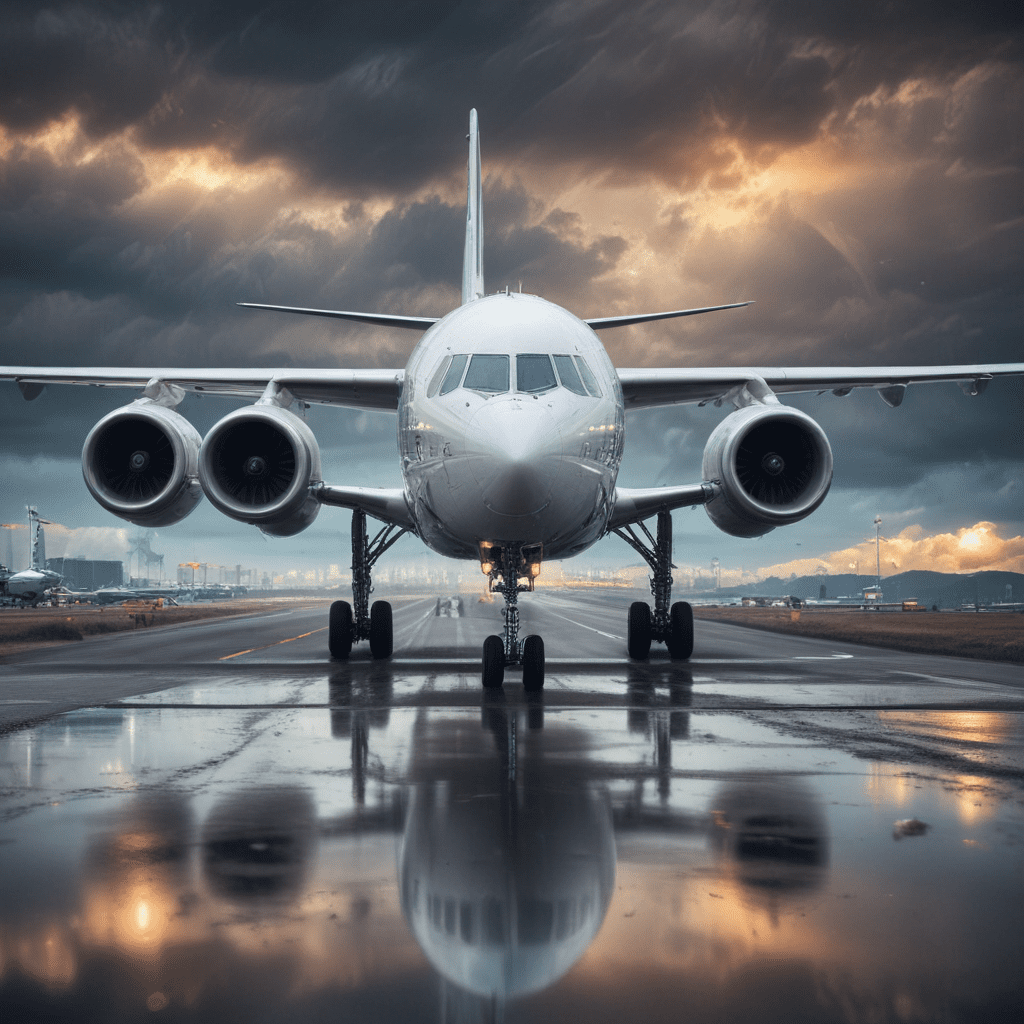
Data Privacy in the Aviation Industry: Protecting Aviation Data
1. Introduction
The aviation industry heavily relies on data to ensure safe, efficient, and enjoyable travel experiences for passengers. This data encompasses various aspects of aviation operations, including flight schedules, passenger information, maintenance records, and air traffic management systems. As the aviation industry continues to evolve and embrace technological advancements, the amount and sensitivity of data being generated and processed increases exponentially.
2. Types of Aviation Data
Aviation data can be broadly classified into two categories:
- Personal Data: Includes information that can be directly linked to an identifiable individual, such as name, address, contact details, and passport information.
- Operational Data: Encompasses data related to aircraft maintenance, flight operations, air traffic management, and other technical aspects of aviation operations.
3. Importance of Data Privacy in Aviation
Protecting aviation data is paramount for several reasons:
- Ensuring Passenger Trust: Passengers trust airlines with their personal information, and it is crucial to maintain their confidence by protecting their data from unauthorized access or misuse.
- Maintaining Operational Integrity: Operational data is essential for maintaining aircraft safety, airspace management, and flight efficiency. Breaches in this data could lead to disruptions and safety concerns.
- Compliance with Regulations: Various national and international regulations mandate the protection of aviation data, including personal data and sensitive operational information.
4. Challenges to Data Privacy in the Aviation Industry
The aviation industry faces challenges in safeguarding data due to several factors:
- Complexity of Data Ecosystems: Aviation data is often shared among multiple entities, including airlines, airports, air traffic control authorities, and maintenance providers, creating a complex data ecosystem that can increase the risk of breaches.
- Rise of Cyber Threats: Cybercriminals increasingly target aviation systems to gain access to sensitive data, making it essential for the industry to implement robust cybersecurity measures.
- Global Nature of Aviation: The global nature of aviation operations presents unique data privacy challenges, as data may be processed and stored in different jurisdictions with varying privacy laws.
6. Best Practices for Data Privacy in Aviation
To enhance data privacy in aviation, organizations can implement several best practices:
- Data Minimization: Collect only the necessary data required for specific purposes.
- Data Anonymization: De-identify personal data by removing or encrypting information that can directly identify individuals.
- Access Control: Implement strict access controls to limit access to sensitive data to authorized personnel only.
- Encryption: Encrypt data both in transit and at rest to protect against unauthorized access.
- Regular Audits: Conduct regular audits to assess data security and compliance with privacy regulations.
7. Technologies for Data Privacy Protection
Advanced technologies can aid in safeguarding aviation data:
- Blockchain: Provides secure and tamper-proof storage for aviation data.
- Homomorphic Encryption: Allows data to be processed without decryption, preserving privacy while enabling analytics.
- Differential Privacy: Introduces controlled noise into data to improve privacy while preserving its utility.
- Privacy-Enhancing Technologies (PETs): Focus on minimizing data sharing while preserving necessary functionality.
8. Role of Stakeholders in Data Privacy
Various stakeholders play crucial roles in aviation data privacy:
- Airlines: Responsible for implementing and maintaining data privacy programs.
- Airports: Must ensure secure data handling within their infrastructure.
- Air Traffic Control Authorities: Protect sensitive data related to airspace management and navigation.
- Passengers: Have the right to control their personal data and expect its secure handling.
- Regulators: Enforce data privacy regulations and hold organizations accountable.
9. Future Trends in Data Privacy in Aviation
Emerging trends will shape data privacy in aviation:
- Increased Regulatory Scrutiny: Governments worldwide are expected to strengthen data privacy regulations in the aviation sector.
- Adoption of Advanced Technologies: Blockchain and other technologies will become more prevalent for enhanced data protection.
- Focus on Data Governance: Aviation organizations will prioritize data governance frameworks to manage data privacy risks effectively.
- Passenger Empowerment: Passengers will have more control over their personal data through informed consent and data access mechanisms.
10. Conclusion
Data privacy is a critical aspect of modern aviation operations, protecting passenger trust, maintaining operational integrity, and ensuring compliance with regulations. By implementing best practices, utilizing advanced technologies, and involving all stakeholders, the aviation industry can effectively safeguard aviation data and foster a secure and privacy-conscious environment.
FAQs
Q: Why is data privacy so important in aviation?
A: Data privacy protects passenger trust, maintains operational integrity, and ensures compliance with privacy regulations.
Q: What are some best practices for data privacy in aviation?
A: Data minimization, anonymization, access control, encryption, and regular audits.
Q: What technologies can be used to enhance data privacy in aviation?
A: Blockchain, homomorphic encryption, differential privacy, and privacy-enhancing technologies (PETs).
Q: What is the role of passengers in aviation data privacy?
A: Passengers have the right to control their personal data and expect its secure handling.
Q: How will data privacy in aviation evolve in the future?
A: Expect increased regulatory scrutiny, adoption of advanced technologies, focus on data governance, and passenger empowerment.


